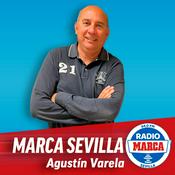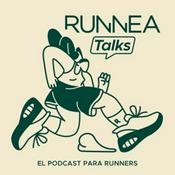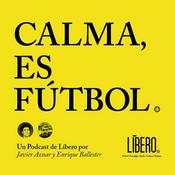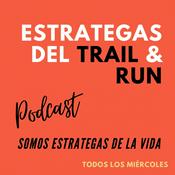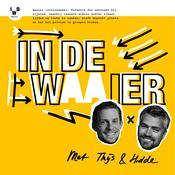313 episodios
- www.run4prs.com for a free week of training
First, let’s break down why training can feel stale. There are a few big reasons:
Repetition without progression – If you’re doing the same long runs, intervals, and tempos week after week without adjusting intensity, your body and your brain get bored.
Mental fatigue – Life stress, work, family, and everything else can drain your energy and make even your favorite workouts feel heavy.
Lack of variety – Running only one route or one type of workout can make training feel monotonous.
Recovery imbalance – Too much volume or not enough rest can zap motivation and make workouts feel sluggish.
The first step is recognizing that it’s normal — every runner hits a plateau or mental block at some point. - www.run4prs.com for a free week of training
Speed sessions – Short, intense repeats that teach your legs to move fast and your lungs to tolerate oxygen debt. Think 400s or 800s at 5K pace or slightly faster.
Threshold runs – Sustained efforts at your “comfortably hard” pace. These build the aerobic engine you need to sustain 5K pace without collapsing. Usually 15–25 minutes at tempo pace.
Race-pace practice – You must spend time at actual 5K pace. Nothing replaces the feel of running the exact effort you’ll need on race day.
Here’s a little secret: the fastest runners aren’t the ones with the highest mileage—they’re the ones who hit their quality workouts consistently and recover properly. - www.run4prs.com
Ever wonder why some runners just seem naturally fast — while others train just as hard but never quite hit those breakthrough PRs? 🏃♀️💨
In this episode, we break down the truth about what the fastest runners actually have in common — and it’s not just genetics. From consistent training habits and recovery strategies to mindset and long-term focus, these are the patterns that separate the good from the great.
We’ll dive into:
✅ The habits every fast runner shares
✅ Training strategies that build real speed
✅ The mindset shift that turns average runners into elite performers
You’ll walk away with a checklist you can use to see if you’re training like a fast runner — or just running in circles.
🎧 Listen now and start thinking (and training) like the fast runners do. - www.run4prs.com for a free week of training
Think you’re too old to chase a PR? Think again.
The biggest barrier to performance isn’t your age—it’s your mindset. In this episode, we’re busting the myths about aging and running performance. Yes, bodies change—but decline isn’t inevitable. You’ll learn the science behind how your body adapts at every age, how to train smarter (not harder), and how shifting your mindset might be the most powerful tool you have.
From strength and recovery strategies to real stories of runners hitting lifetime PRs in their 40s, 50s, and beyond—this episode will show you what’s still possible.
🎧 Tune in to learn how to stay fast, strong, and motivated at any age. - www.run4prs.com
We want to talk about running mistakes — because every runner makes them, and honestly, they teach us more than our wins sometimes.
But here’s the important part: mistakes don’t make you weak. They make you wiser. If you’re willing to pause, reflect, and adjust — they can actually be the thing that levels you up for your next season.
Más podcasts de Deportes
Podcasts a la moda de Deportes
Acerca de Run4PRs
We build stronger runners at Run4PRs Coaching. This podcast is filled with training tips & personal stories from the @run4prs coaches like 13x Boston Qualifier Victoria Phillippi. Our goal is to empower you with training tips & help you become the best athlete you can be. Want to get a more customized approach or consult with us directly on YOUR running questions? —-> www.Run4prs.com for a free 7 day trial
Sitio web del podcastEscucha Run4PRs, DESPIERTA SAN FRANCISCO con David Sánchez y muchos más podcasts de todo el mundo con la aplicación de radio.es

Descarga la app gratuita: radio.es
- Añadir radios y podcasts a favoritos
- Transmisión por Wi-Fi y Bluetooth
- Carplay & Android Auto compatible
- Muchas otras funciones de la app
Descarga la app gratuita: radio.es
- Añadir radios y podcasts a favoritos
- Transmisión por Wi-Fi y Bluetooth
- Carplay & Android Auto compatible
- Muchas otras funciones de la app


Run4PRs
Escanea el código,
Descarga la app,
Escucha.
Descarga la app,
Escucha.












